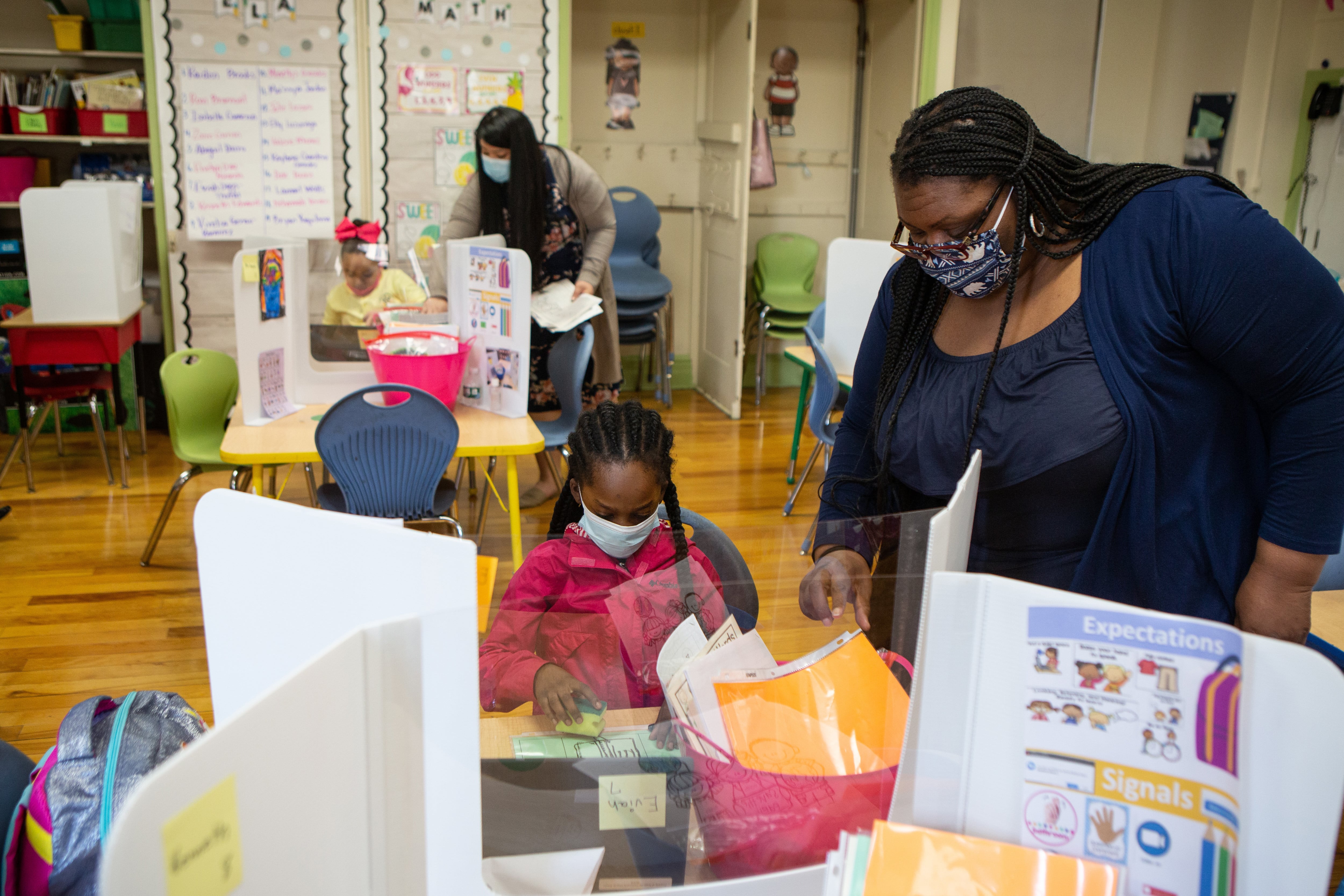After an alarming drop in reading and language arts test scores among students in New Jersey, state and local advocates are urging education leaders to develop a plan to improve literacy in public schools.
The New Jersey Legacy of Literacy (NJLL) Coalition, a group launched by JerseyCAN, a statewide organization advocating for high quality education for public school students, is urging Gov. Phil Murphy, the state legislature, and the state’s department of education to adopt a statewide plan that addresses literacy in every public school.
Ensuring students can read is important for their long term success, said Paula White, executive director of JerseyCAN.
“You cannot access the curriculum if you cannot read well,” White added. “And by reading well, I don’t just mean calling out words and being able to decode, but also to have a level of comprehension.”
Historically, New Jersey fourth and eighth graders have fared better than the nation’s average in reading tests known as the “nation’s report card,” but saw dismal results in last year’s assessment.
Similarly, in the state’s English language arts test, only 49% of New Jersey students passed and only 27% of Newark public school students reached proficiency levels last spring, prompting advocates’ concern for student learning, especially among students of color.
Experts say reading is part of a developmental process that starts at a young age and impacts a child’s likelihood to graduate high school, pursue college, and ultimately a career.
It’s important to tackle the problem early on, White said, especially in third grade where reading levels “are a significant predictor” for reading levels in the eighth grade and beyond. Students of color in New Jersey are more at risk of falling behind as reading proficiency levels among Black third graders in public schools started to decline in 2019, before the pandemic, according to a report by The Racial Equity Initiative.
White calls the current reading crisis, an “achievement gulf,” alluding to the disparities in reading levels that began before the pandemic. That “gulf” can be a problem for Newark in the future if it fails to prepare its children for the workforce and potential jobs in the city, White added.
“If we don’t have a populace that is academically prepared to step into those roles then we run the danger of having some of those opportunities leave our state or folks coming into our state from elsewhere to take advantage of those opportunities,” White said.
In Newark, only 19% of third graders passed last year’s state reading assessment, the lowest of any grade in the city. More strikingly, 19% of third grade Hispanic students passed their English language arts test, and only 13% of third grade Black students met expectations.
Local groups like Project Ready, the Newark Trust for Education, and TFA New Jersey have already signed up to partner with JerseyCAN and participate in the coalition of groups from across the state to launch a layered plan that starts with a marketing campaign to bring awareness about the literacy gap in New Jersey public schools.
The work also focuses on a lobbying campaign to push the state legislature to define clear state directives and goals to address the reading gap, enable training for all public school teachers, mandate more significant notice to parents about their children’s reading levels, and instruct the state department of education to develop and implement a plan to address the gap. School districts should also be supported in choosing reading curricula as local districts in New Jersey make their own decisions on those items, White added.
Teachers are tasked with tackling the reading crisis but the goal, White said, is to ensure that “educators are trained in the science of reading” in order to prepare teachers to meet the demands of today.
It’s also important to ensure that young students are screened in early grades, so that if they show signs of reading challenges such as dyslexia, schools can provide early intervention and support, White added. Parents should also know whether or not their child is reading on grade level and easily find school level support if they’re not.
“There needs to be a really clear line in the sand that’s yes or no about where children stand,” White added.
Under the state’s 2024 budget, Murphy allocated $20 billion for pre-K-12 education, an increase of $1 billion over the current year. The additional funds are important but White says the state needs to focus on a clear vision to tackle the “achievement gulf” in reading.
“If we have the funds and we don’t have a clear vision and clear pathway, about how to get to our goals, it’s not going to amount to much,” White added.
The New Jersey Legacy of Literacy Coalition kicked off its “literacy tour” campaign on Wednesday in Newark with a screening of “The Right to Read,” a film that shines a light on the consequences of illiteracy, such as homelessness, unemployment, and incarceration. The group will also screen the film in Asbury Park on May 24 and in Camden on May 31.
Jessie Gomez is a reporter for Chalkbeat Newark, covering public education in the city. Contact Jessie at jgomez@chalkbeat.org.






